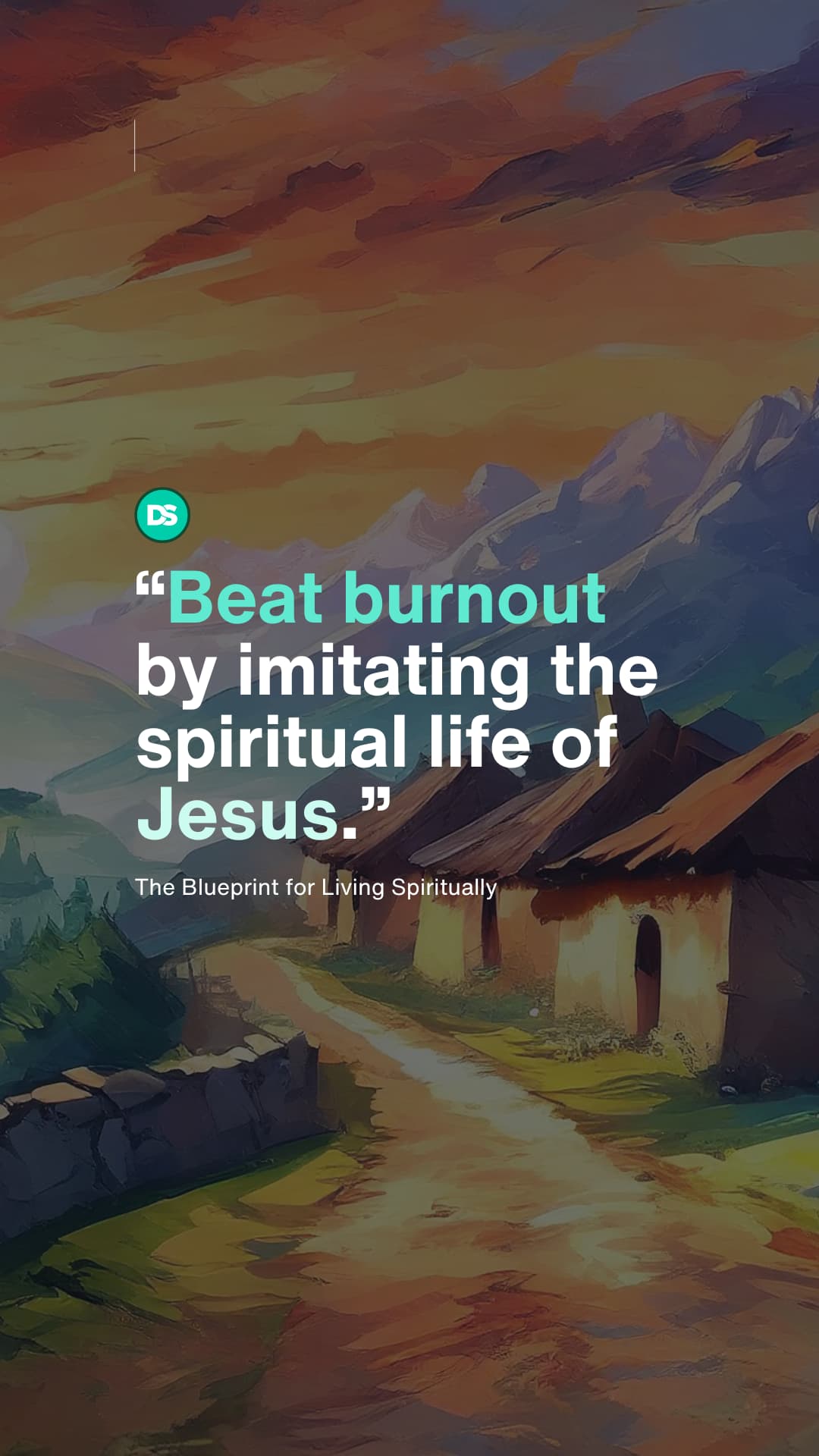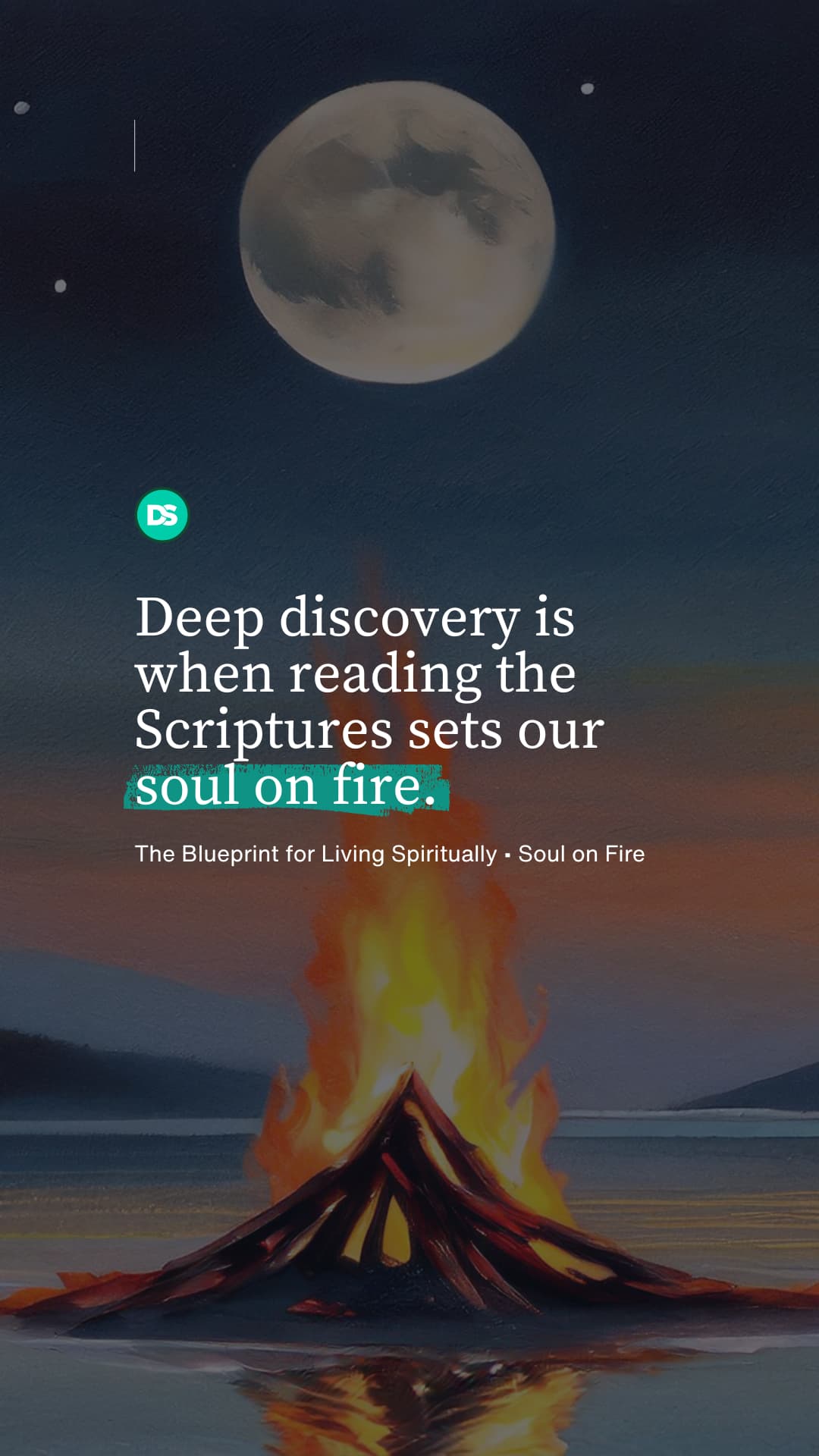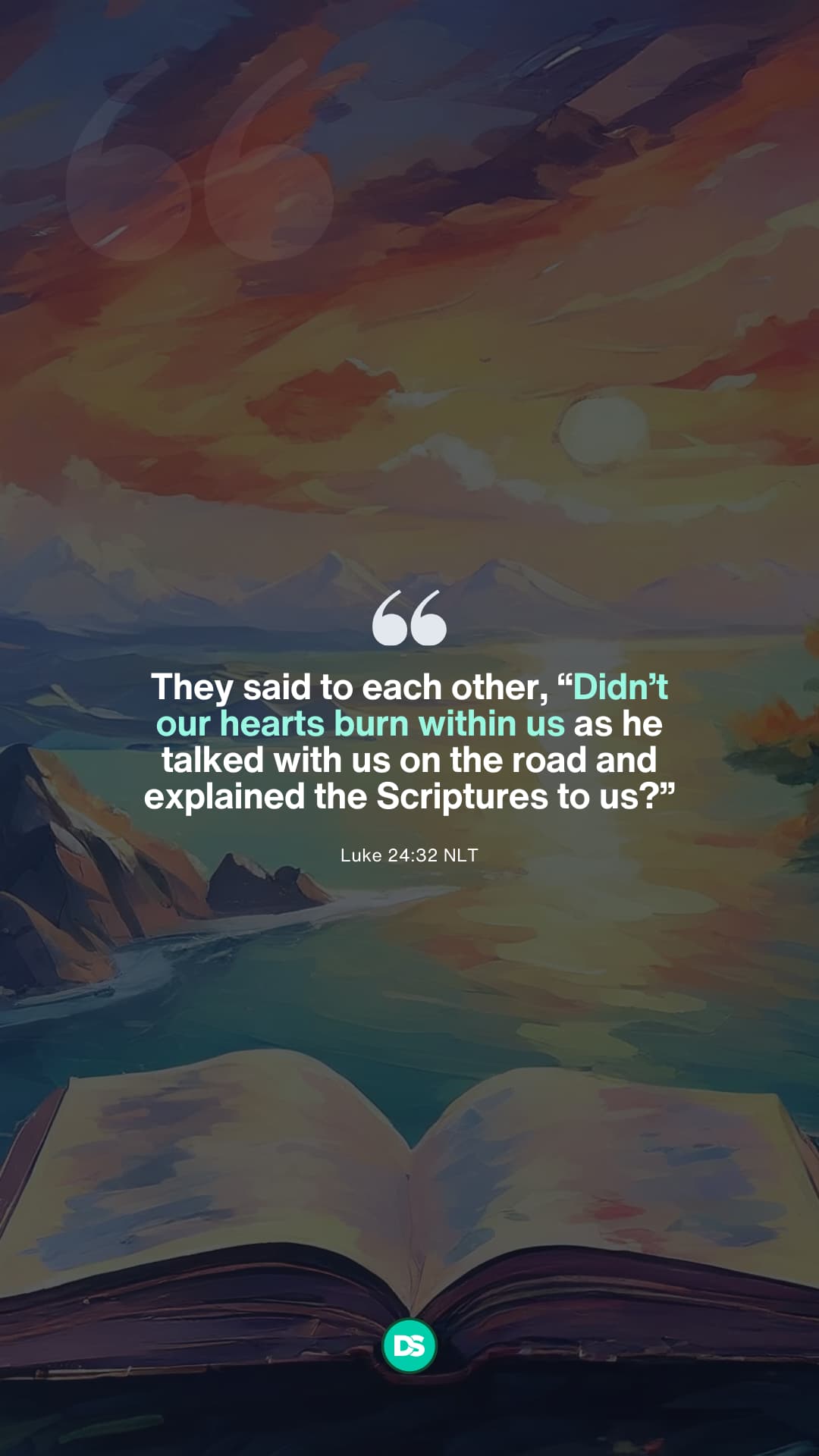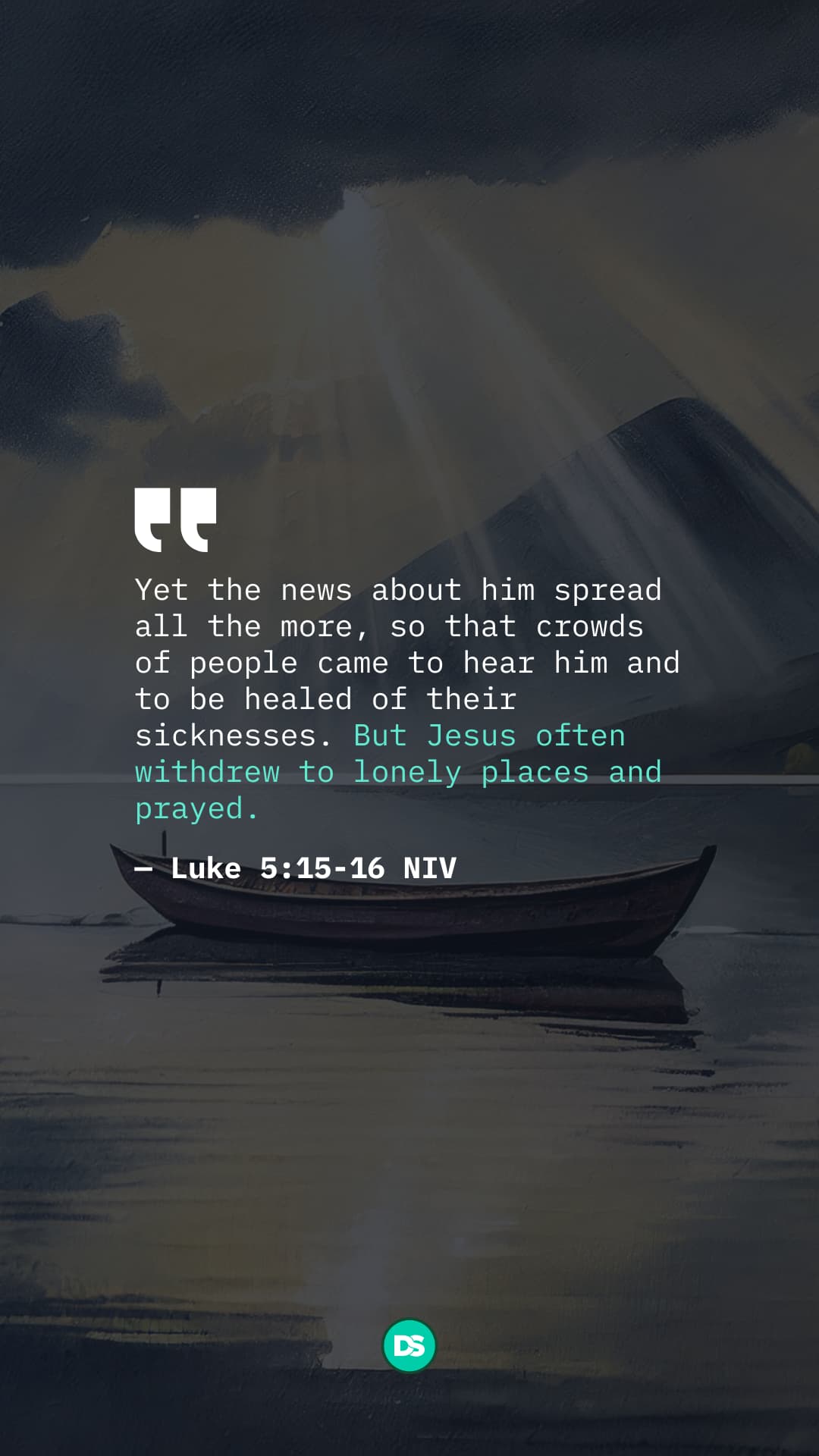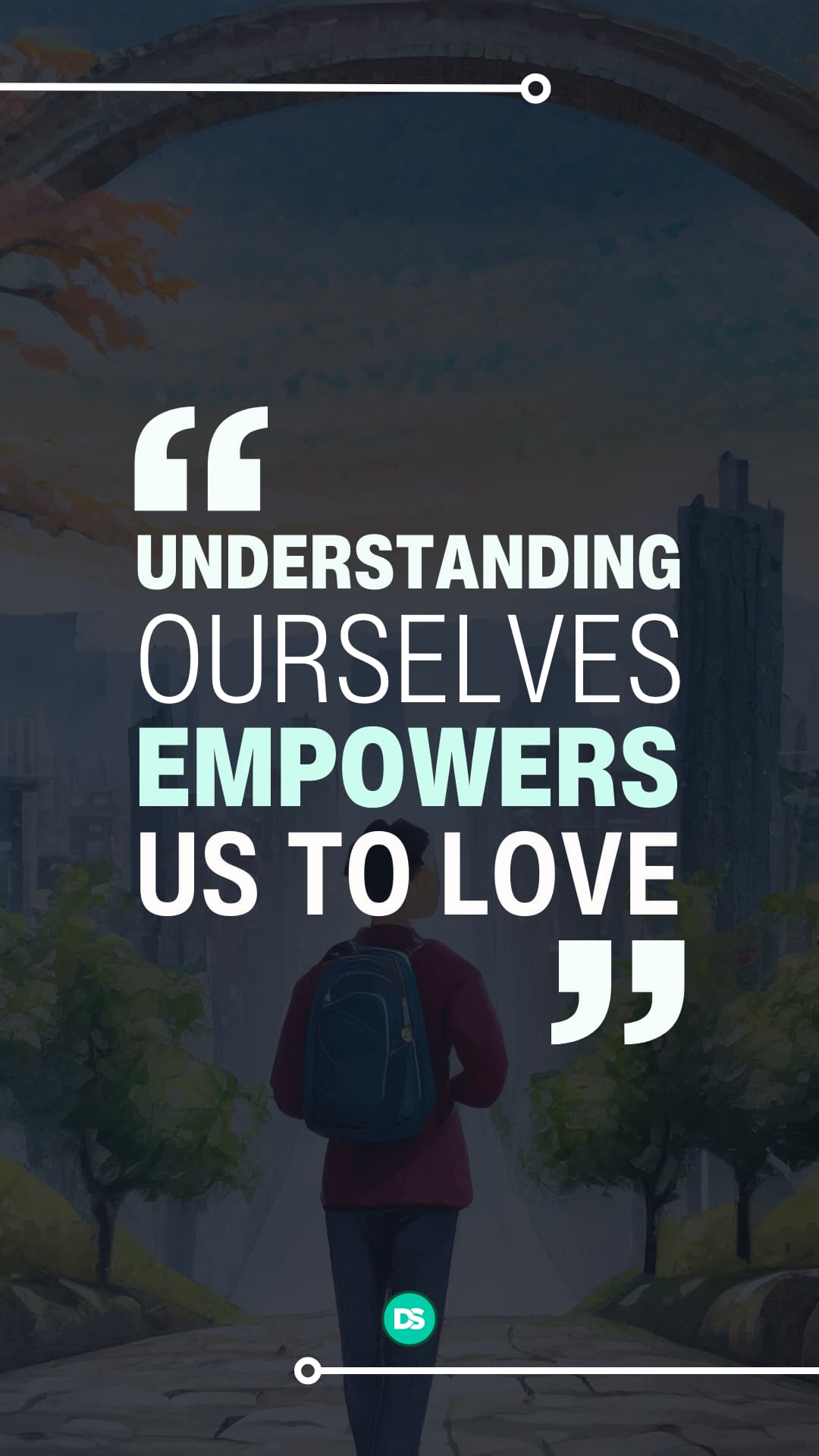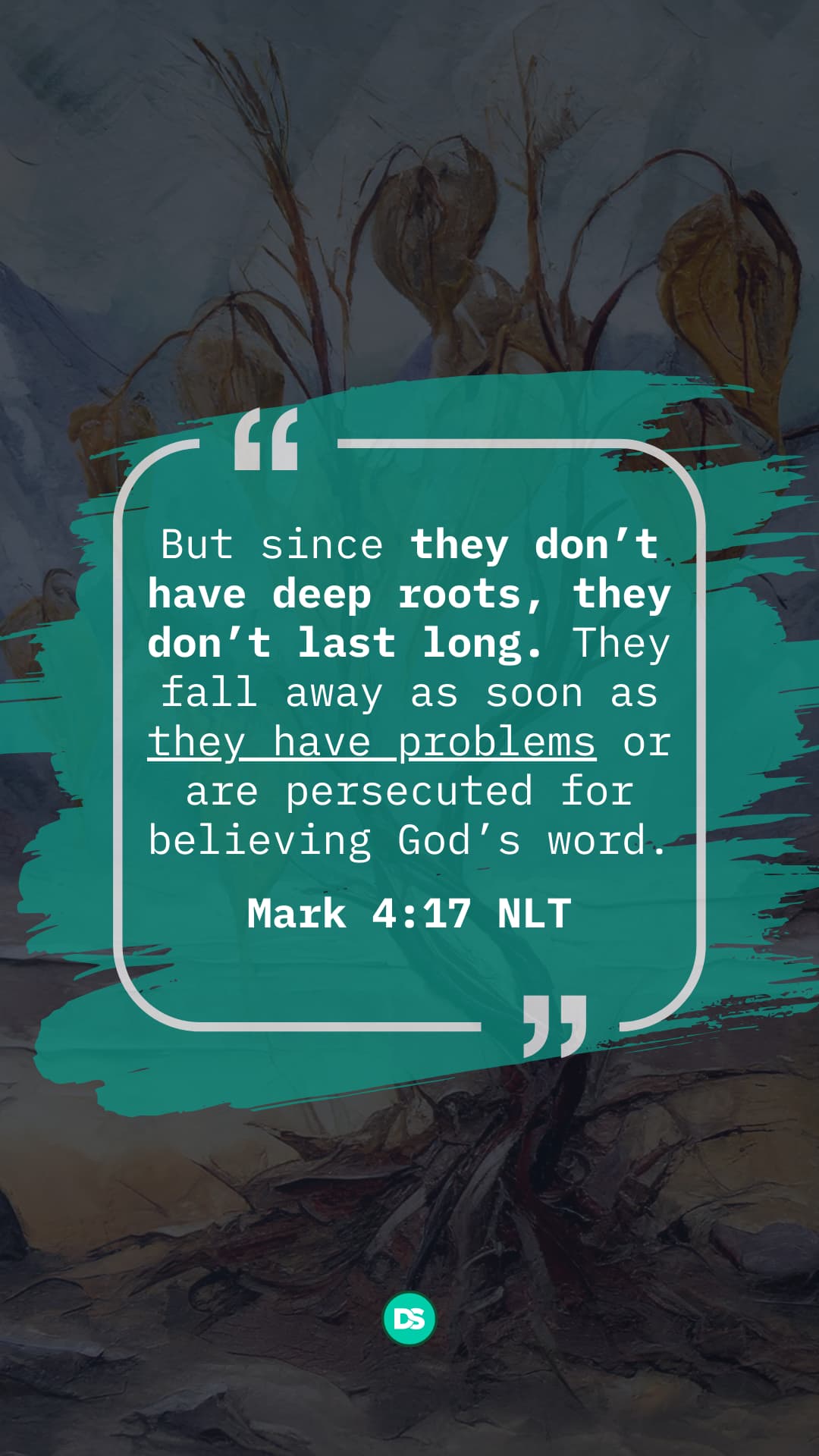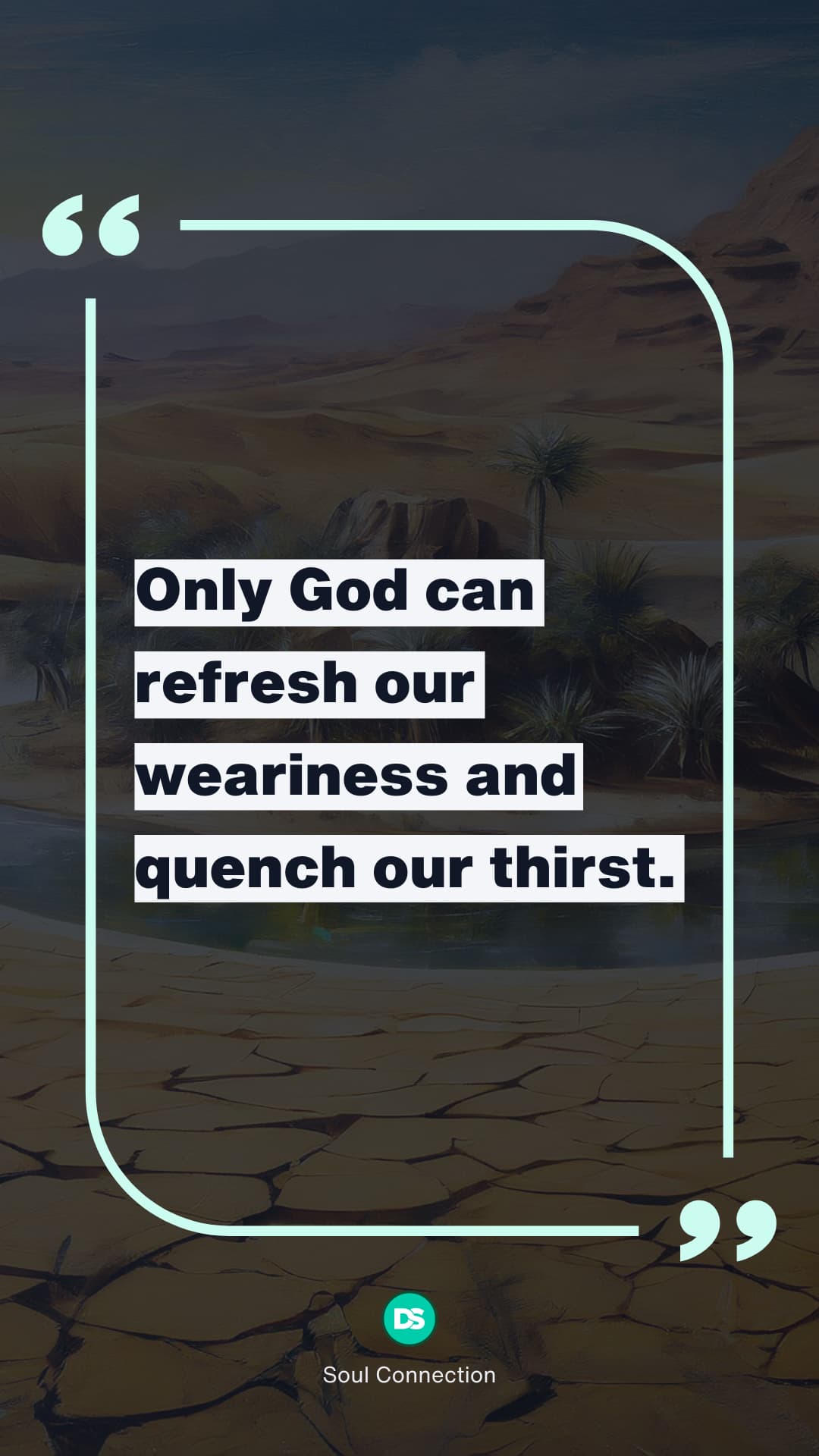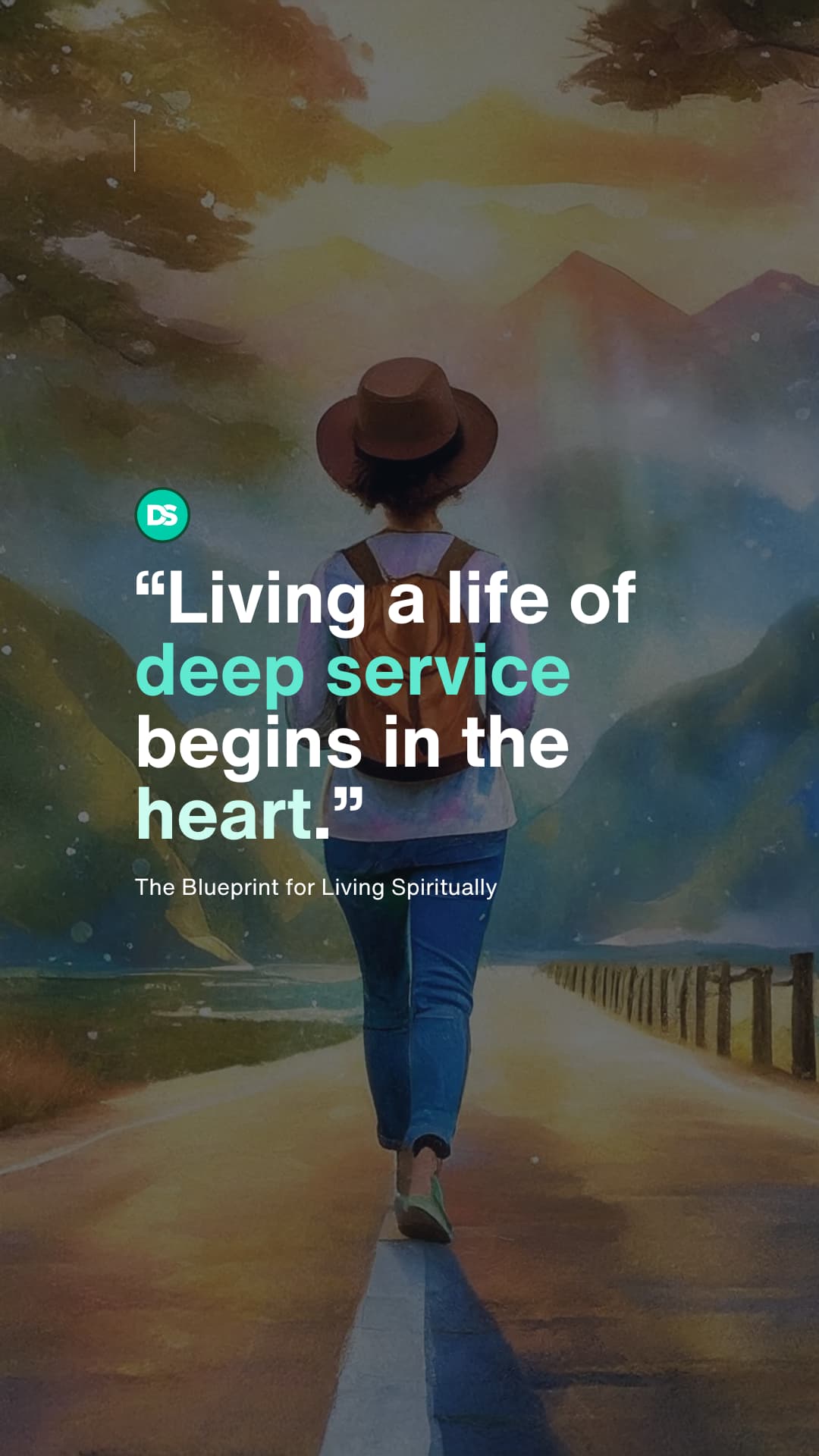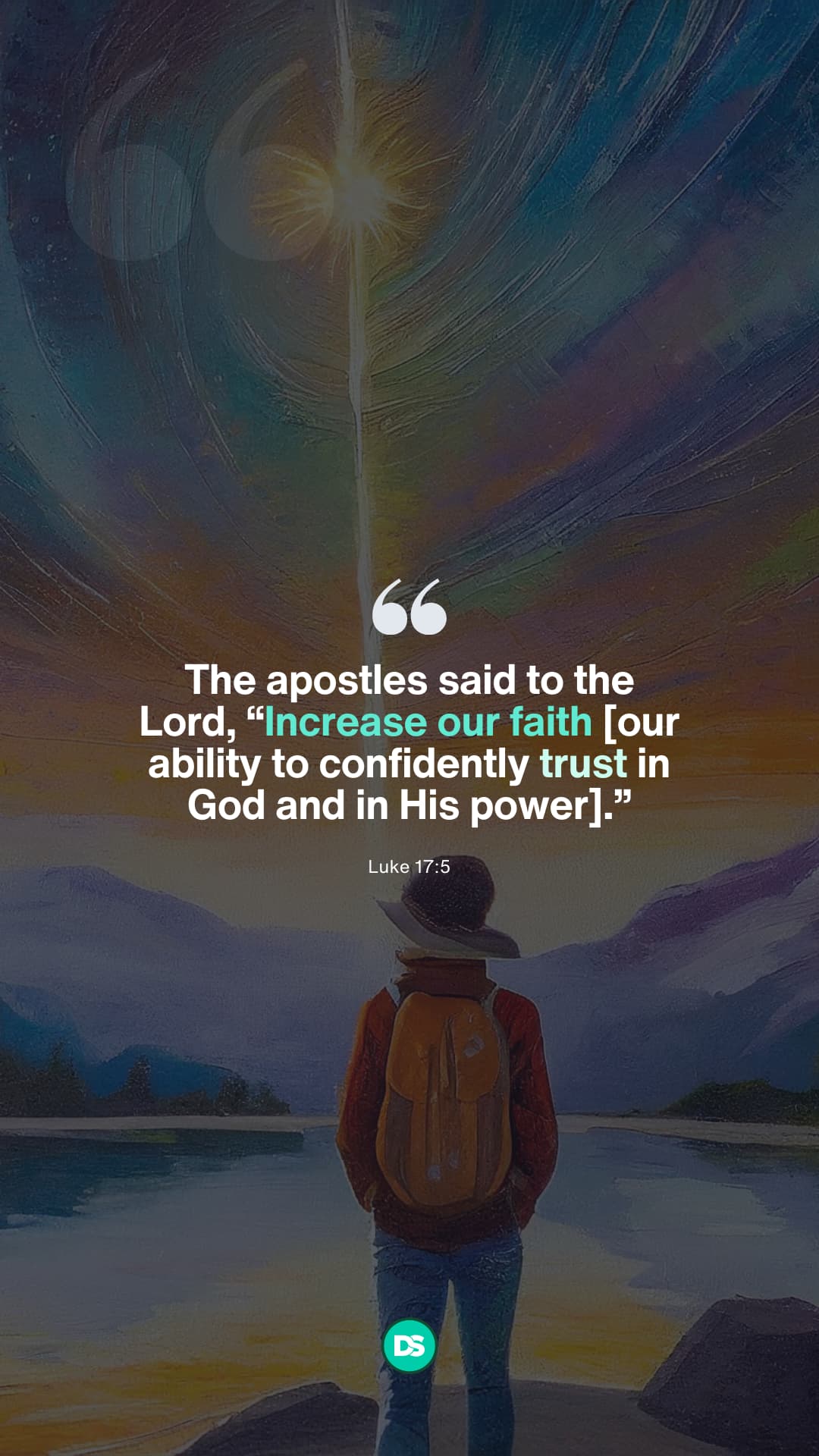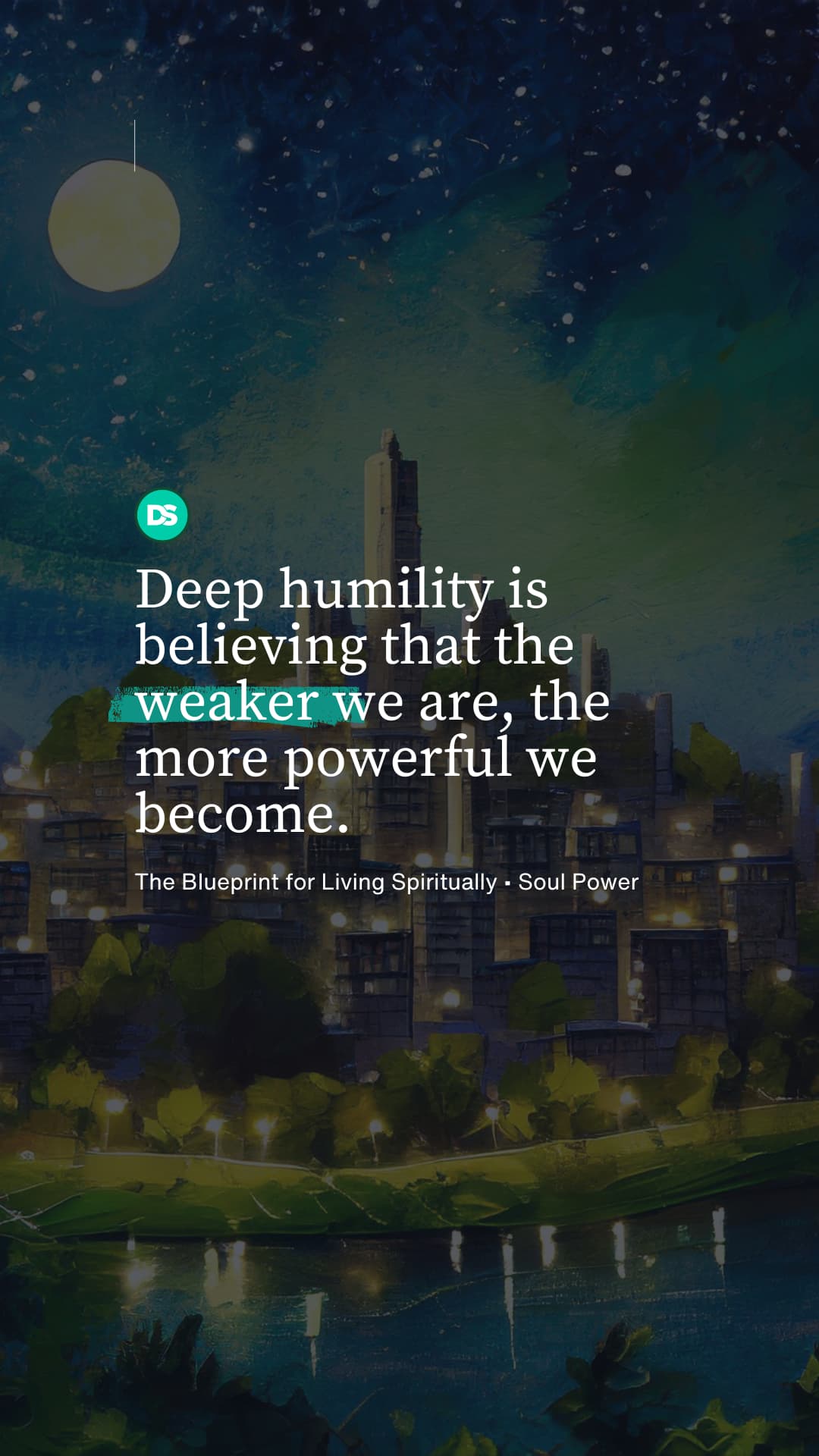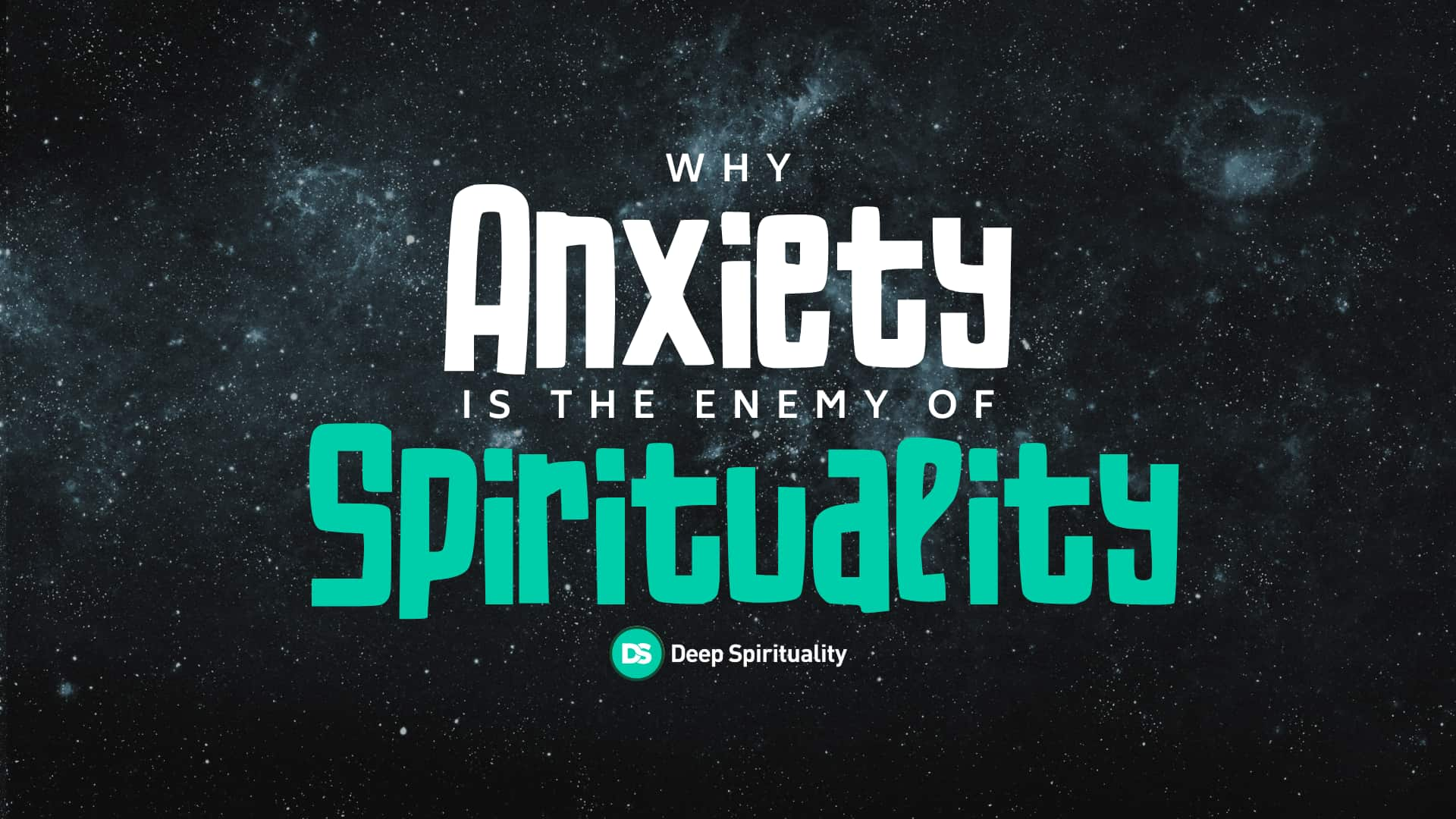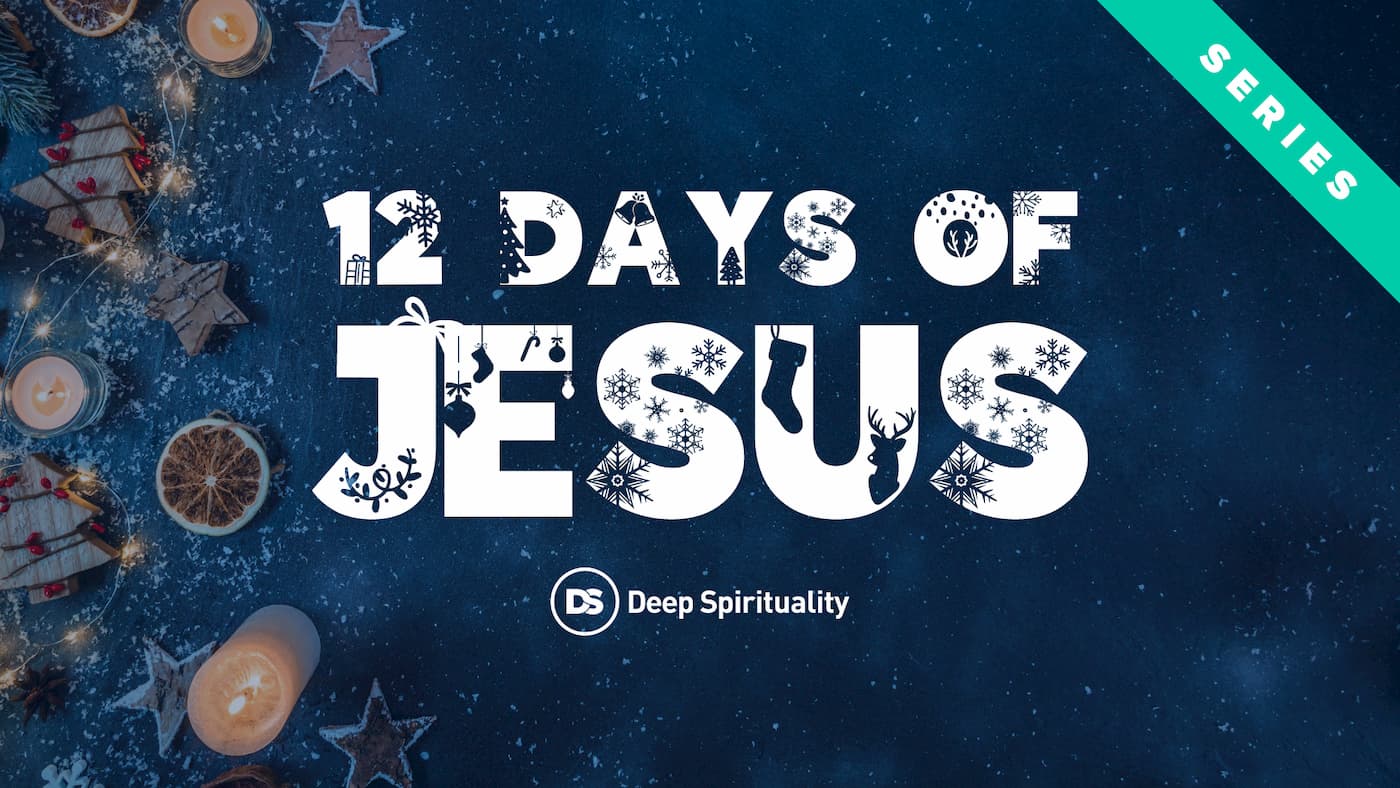The Blueprint for Living Spiritually
A five-step journey to a soul connection with God, through the footsteps of Jesus.
Listen to this devotional:
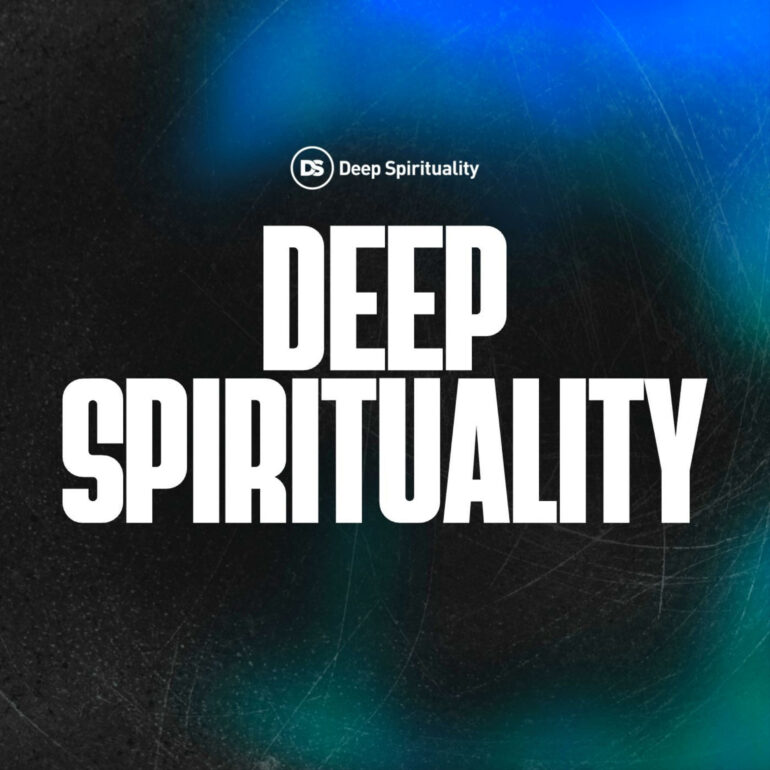
Follow our Deep Spirituality Podcast Network to meet all your spiritual podcasting needs. Join our Editor-in-Chief Russ Ewell and guests as they have candid discussions on spiritual topics ranging from faith to anxiety to vulnerability, or check out our narrative podcasts for an immersive storytelling experience of biblical stories. You could also listen to our scripture playlists to learn more about God and yourself as you go about your week.
Check out our book “He’s Not Who You Think He Is: Dropping Your Assumptions and Discovering God for Yourself” at https://deepspirituality.com/book.
A few weeks ago, we published our latest Featured Devotional by our editor in chief, Russ Ewell, entitled “The Blueprint for Living Spiritually: A five-step journey to a soul connection with God, through the footsteps of Jesus.”
We are excited to let you know that you can now listen to the Blueprint in its entirety on our website so you can listen as you read along.
We are introducing a new show format, called Deep Reads, in which we will narrate Featured Devotionals and release them as episodes on our podcast feed regularly.
To give you the best possible listening experience, we had this voiced by a great narrator rather than autogenerated text-to-speech. We will also be releasing smaller episodes for each section to allow you to more easily listen to the part you are looking to study.
We hope Deep Reads helps you get the most out of The Blueprint for Living Spiritually and many of our future devotionals! If you have any other ideas or requests, don’t hesitate to reply to this email, or drop us a line at podcast@deepspirituality.com.
00:00 Introduction
10:12 Soul on Fire
17:22 Soul Care
27:00 Soul Connection
32:59 Soul Purpose
42:38 Soul Power
51:32 Conclusion

by RUSS EWELL
March 17, 2024 • Devotionals
Introduction
“Are you tired? Worn out? Burned out on religion? Come to me. Get away with me and you’ll recover your life. I’ll show you how to take a real rest. Walk with me and work with me—watch how I do it. Learn the unforced rhythms of grace. I won’t lay anything heavy or ill-fitting on you. Keep company with me and you’ll learn to live freely and lightly.”
Matthew 11:28-30 MSG
Jesus lived a spiritual life. His was not a life of selfish isolation but of social interaction, involvement, inclusion, and intimacy. Despite a life dedicated to selfless service and sacrifice, he remained resilient and never succumbed to burnout. This life of spirituality is what Jesus came to teach, understanding the human inclination to hyperfocus on behavior to the neglect of our inner lives.
But Jesus, for His part, did not entrust Himself to them, because He knew all people [and understood the superficiality and fickleness of human nature], and He did not need anyone to testify concerning man [and human nature], for He Himself knew what was in man [in their hearts—in the very core of their being].
John 2:24-25 AMP
Human nature inclines toward superficiality and fickleness when our spiritual lives are neglected. This “superficiality and fickleness” of human nature is what makes the reading of Scripture, the mental work of prayer, and the introspection of spirituality so difficult. As someone once told me, “I focus on obedience because it is easier.”
Obedience of this type turns God into a rule maker instead of a relationship, leading us to focus on behavior instead of our inner life. Our Christianity becomes a grind and results in burnout. Remember, the obedience taught in Scripture is an expression of love.
Loving God means keeping his commandments, and his commandments are not burdensome.
1 John 5:3 NLT
When we see God as a rule maker instead of a relationship, everything about following Jesus becomes burdensome. We turn the life of faith that is following Jesus from spiritual to behavioral. Following Jesus becomes a shallow and powerless religious commitment to behavioral rules instead of a deeply spiritual walk with God in which we overcome our human limits. This dilemma is not unique; it is common, as described in the book of 2 Corinthians. The Corinthians struggled with living behaviorally. They lived the limited life of rule-following instead of the limitless life of the Spirit (Galatians 5:22-23 TPT).
He has enabled us to be ministers of his new covenant. This is a covenant not of written laws, but of the Spirit. The old written covenant ends in death; but under the new covenant, the Spirit gives life.
2 Corinthians 3:6 NLT
Jesus calls us back from the brink of behavioral burnout in Matthew 11:28-30 when he says, “Walk with me and work with me—watch how I do it. Learn the unforced rhythms of grace.” His focus is cultivating a relationship “with him,” learning to live a spiritual life through this connection rather than enduring the burdensome and ill-suited life of strict behavioral adherence (John 15:1-8 Voice). This approach enables us to “live freely and lightly” and embrace our authentic selves. We can then be transformed by God’s power instead of being hindered by the frustrations of navigating life through human effort alone.
From a biblical point of view, what we will call “behavioral religiosity” depersonalizes God into a set of commandments or rules. Spirituality personalizes God by allowing Jesus to teach us who he is, how to know him, and how to walk with him.
“When we see God as a rule maker instead of a relationship, everything about following Jesus becomes burdensome.”
The spiritual person knows that the key to avoiding burnout is understanding that Jesus’s invitation is to “walk with me and work with me.” This means that our relationship with Jesus makes the walk free and light. Moving forward, our goal is to develop content that assists each of us in experiencing our relationship with Jesus in this transformative manner. This way, instead of facing burnout, we will thrive and flourish.
From behavioral religiosity to spiritual Christianity
“I began to crash spiritually. I was burning out. I began to pretend more and share my true spiritual condition less. Rather than being motivated by my relationship with God, I was energized by attention, selfish ambition, and the achievement of position. After escaping the rat race of the world, I had now turned the church into a rat race by abandoning God and worshiping people. I was losing the courage to be different.”
Russ Ewell, He’s Not Who You Think He Is (p. 65)
Writing He’s Not Who You Think He Is was my effort to share my journey from behavioral religiosity to spiritual Christianity. By no means have I arrived. Resisting my human tendency to be religious instead of spiritual is a life-long pursuit.
Fortunately for me, the team at Deep Spirituality shares my desire to beat burnout by imitating the spiritual life of Jesus. Over the last few months, we have been reflecting on our own religiosity and spirituality. We have been asking ourselves some important questions: Are we living religious or spiritual lives? Is our focus on outward behavior or the inner life? What kind of culture are we fostering: one rooted in spirituality or in behavioral religiosity? How can we become more spiritual and less religious? How can we develop content and engage with you as our audience in a deep and accessible way? How can we deliver spiritually enriching material inspired by the life and teachings of Jesus so that each of us is growing inwardly and forging ahead in our walks with God?
Our answers to those questions, developed with much prayer and countless discussions, have produced what we believe is a powerful blueprint for living spiritually. Today marks the start of our journey together, and we eagerly anticipate your insights and support. Our goal is to not only grow personally but also offer guidance to a world seeking spiritual solutions, introducing the ultimate answer found in Jesus.
The depth difference
I will show you what it’s like when someone comes to me, listens to my teaching, and then follows it. It is like a person building a house who digs deep and lays the foundation on solid rock. When the floodwaters rise and break against that house, it stands firm because it is well built. But anyone who hears and doesn’t obey is like a person who builds a house right on the ground, without a foundation. When the floods sweep down against that house, it will collapse into a heap of ruins.”
Luke 6:47-49 NLT
Jesus highlighted depth as the critical distinction between those who follow his teachings and those who do not. He likened the obedient to individuals who dig deep and lay a solid foundation for their lives, in contrast with the disobedient who choose the easier and more superficial route of building on the surface. “The depth difference” encapsulates this principle: the way we construct our faith journey determines whether we are simply adhering to behavioral norms and risking burnout, or truly connecting with him on a spiritual level, a path that promises growth and flourishing.
Frequently, we attribute burnout to external pressures, yet Jesus consistently directs our attention to internal contributors. Specifically, it’s our superficial engagement that precipitates the burnout or collapse of our lives.
Recognizing this, we outlined five essential steps in our blueprint that are designed to deepen our spiritual foundation. These steps guide us to firmly place the correct foot forward on our path to emulate Jesus’s walk. Based on our theme scripture translated in the Amplified version, we will focus on the deepest of deep—our souls.
“Come to Me, all who are weary and heavily burdened [by religious rituals that provide no peace], and I will give you rest [refreshing your souls with salvation].”
Matthew 11:28 AMP
In each of the five steps, we have included two to four questions, one scripture, and one song which will serve as preparation to embark on this journey to understand and imitate the spirituality of Jesus.
Frequently, we attribute burnout to external pressures, yet Jesus consistently directs our attention to internal contributors. Recognizing this, we outlined five essential steps in our blueprint that are designed to deepen our spiritual foundation.
These steps guide us to firmly place the correct foot forward on our path to emulate Jesus’s walk. Based on our theme scripture translated in the Amplified version, we will focus on the deepest of deep—our souls.
“Come to Me, all who are weary and heavily burdened [by religious rituals that provide no peace], and I will give you rest [ refreshing your souls with salvation].”
— Matthew 11:28 AMP
Stage one
Soul on Fire
Living a life of deep discovery
They said to each other, “Didn’t our hearts burn within us as he talked with us on the road and explained the Scriptures to us?”
Luke 24:32 NLT
Deep discovery is when reading the Scriptures sets our soul on fire. Once our soul is on fire, our prayers catch fire. We seek God passionately, expectantly, and vulnerably until we experience his presence like this psalmist:
Listen, YAHWEH, to my passionate prayer! Can’t you hear my groaning? Don’t you hear how I’m crying out to you? My King and my God, consider my every word, for I am calling out to you. At each and every sunrise you will hear my voice as I prepare my sacrifice of prayer to you. Every morning I lay out the pieces of my life on the altar and wait for your fire to fall upon my heart.
Psalm 5:1-3 TPT
The fire that falls upon our hearts is that of God’s Spirit, which when allowed to work in our lives as urged in 1 Thessalonians 5:19 GW, burns away the temptation to approach Scripture and prayer in a defensive, clinical, cold, and fearful manner. The Spirit sets us free to approach God with intimacy, knowing God and knowing ourselves like never before. This experience is one we should have every morning of every day for our entire lives.
But whenever someone turns to the Lord, the veil is taken away. For the Lord is the Spirit, and wherever the Spirit of the Lord is, there is freedom. So all of us who have had that veil removed can see and reflect the glory of the Lord. And the Lord-who is the Spirit-makes us more and more like him as we are changed into his glorious image.
2 Corinthians 3:16-18 NLT
Keeping our souls on fire is the reason we must live a life of deep discovery. Here are three questions we can ask ourselves to begin or enhance our life of deep discovery.
A. How is my faith?
Without weakening in his faith, he faced the fact that his body was as good as dead-since he was about a hundred years old-and that Sarah’s womb was also dead. Yet he did not waver through unbelief regarding the promise of God, but was strengthened in his faith and gave glory to God, being fully persuaded that God had power to do what he had promised.
Romans 4:19-21 NIV
Deep discovery begins with addressing our faith in God. Romans 4:19-21 can help us examine our lives for areas of unbelief as we ask ourselves these questions:
- Are there any areas of unbelief preventing me from being a soul on fire?
- How can I strengthen my faith to reignite the fire of the Spirit in my soul?
B. How is my inner life?
Before I confessed my sins, I kept it all inside; my dishonesty devastated my inner life, causing my life to be filled with frustration, irrepressible anguish, and misery. The pain never let up, for your hand of conviction was heavy on my heart. My strength was sapped, my inner life dried up like a spiritual drought within my soul.
Psalm 32:3-4 TPT
Deep discovery of our faith will often reveal internal turbulence in our lives. This means our inner life is affected—our emotions, thoughts, and spirit or mood. The Bible teaches that sin often creates or exacerbates this turbulence, with destructive consequences.
When our inner life is chaotic, dark, or discouraging, it will dry up. This creates a spiritual drought in our soul. The way out is to understand that sin is not a measure of our success as a Christian or person, nor should it ever be allowed to define us. Sin is simply the most destructive force at work on our inner life. It is dealt with by confession, often accompanied by transformative changes of heart and life.
Pause and reflect
- What is affecting my inner life? How much of it involves unresolved emotions or thoughts?
- Are there things affecting my spirit or mood, like suffering or difficulty?
- Have any sins made all of this more difficult? How can I start talking to people and God to heal my inner life?
C. Do I know I am forgiven?
Whenever our hearts make us feel guilty and remind us of our failures, we know that God is much greater and more merciful than our conscience, and he knows everything there is to know about us.
1 John 3:20 TPT
Addressing our faith and inner life in the process of deep discovery often reveals persistent and unhealthy feelings of guilt. These feelings of guilt will undermine our faith in God. Guilt attacks our confidence in God, joy in life, ability to be close to people, and hope for the future. Left unaddressed, guilt chokes out the fire in our souls. This is why we must remember that God is greater than our guilt. He has given us the book of 1 John to help us remember we are forgiven, and this is a tremendous book of the Bible to read when we need to resolve feelings of guilt.
Pause and reflect
- Are there any areas of guilt preventing my soul from being on fire? Have I sought forgiveness from God in prayer? Have I asked close friends to pray for me to receive healing from this guilt?
- Am I ready and willing to leave my guilt in the past by accepting God’s forgiveness so that I can live new every day and my soul can be on fire?
“The Spirit sets us free to approach God with intimacy, knowing God and knowing ourselves like never before. This experience is one we should have every morning of every day for our entire lives.”
Stage two
Soul Care
Living a life of deep reflection
Yet the news about him spread all the more, so that crowds of people came to hear him and to be healed of their sicknesses. But Jesus often withdrew to lonely places and prayed.
Luke 5:15-16 NIV
Jesus demonstrated a human superpower available to us all—his capacity to silence the noise of distraction to care for his soul life. Imitating the spiritual life of Jesus means we need to invest in soul care, which requires taking time for deep reflection to make certain our soul is getting along well.
Dear friend, I pray that you may enjoy good health and that all may go well with you, even as your soul is getting along well.
3 John 1:2 NIV
Soul care has become increasingly challenging. We live in a time when technology offers addictive information and entertainment at our fingertips, leading many to lose both the desire and the ability to find silence and engage in deep reflection.
In this media-drenched, data-rich, channel-surfing, computer-gaming age, we have lost the art of doing nothing, of shutting out the background noise and distractions, of slowing down and simply being alone with our thoughts.
Carl Honore, In Praise of Slowness: Challenging the Cult of Speed
Keeping the fire burning in our souls demands soul care, which is only made possible through deep reflection.
Here are three questions we can ask to assess our level of deep reflection and take steps to ensure we are investing the appropriate amount of time and effort in soul care.
A. How deeply am I allowing the Scriptures to work in my life?
For the word of God is living and active and full of power [making it operative, energizing, and effective]. It is sharper than any two-edged sword, penetrating as far as the division of the soul and spirit [the completeness of a person], and of both joints and marrow [the deepest parts of our nature], exposing and judging the very thoughts and intentions of the heart.
Hebrews 4:12 AMP
The deep reflection of soul care begins with reading the Bible, or the Word of God. Contrary to what some think, the Bible is not an instruction manual of rules on how to live life, nor is it a philosophical tome for providing meaning to life. It is a spiritual book that reaches into the deepest parts of our being.
God knows our complete person. He knows what lies at the core of our being—our thoughts, intentions, and what makes us tick. He has provided us with the Bible, the Word of God, the Holy Scriptures, that we might know him and, in knowing him, our Creator, come to know ourselves.
Understanding ourselves at such a deep level empowers us to love, live with purpose, embrace change, and, by doing so, flourish in life.
Pause and reflect
- How much am I allowing the Bible to reveal my true thoughts and intentions?
- What has the Bible taught me about my capacity to love?
- Have I allowed the Scriptures to help me discover my purpose?
- When I read the Scriptures, am I searching for the path to the type of growth and change that will allow me to flourish spiritually?
B. What is the quality of my prayer life?
Now to him who is able to do immeasurably more than all we ask or imagine, according to his power that is at work within us, to him be glory in the church and in Christ Jesus throughout all generations, for ever and ever! Amen.
Ephesians 3:20-21 NIV
Deep reflection is an essential part of our prayer life; without thought our prayers will lack the specificity that flows from faith. Mindless prayer is powerless prayer because it is disconnected from God (Matthew 6:5-8). Thoughtful prayer is powerful prayer because we are focused on God and believe he is listening.
When we pray with faith, our asking comes from the hard work of deep reflection, which is the type of deep thinking that envisions possibilities beyond the status quo rather than accepting life as unchangeable. This is what we might call “imaginative prayer,” fueled by the hard mental work described by Henri Nouwen:
Prayer therefore requires hard mental work and is quite fatiguing, especially if reflective thinking is not one of our strengths.
Henri Nouwen, The Spiritual Life
We can improve our prayer lives exponentially if we commit to the hard mental work of deep reflection. Our reflection will put specificity into our asking, which allows us to imagine the great things God can do, and then based on Ephesians 3:20-21, rely on God to answer those requests.
Pause and reflect
- Do I do the deep thinking necessary to pray imaginatively, specifically, and expectantly with the belief that God will answer in the affirmative?
- What can I do to be more thoughtful in my prayer life?
C. When did I last experience a spiritual breakthrough?
But I’m happy now, not because I made you uncomfortable, but because the distress I caused you has led you to change the way you think and act. You were distressed in a godly way, so we haven’t done you any harm. In fact, to be distressed in a godly way causes people to change the way they think and act and leads them to be saved. No one can regret that. But the distress that the world causes brings only death.
2 Corinthians 7:9-10 GW
Spiritual breakthroughs happen when we change—change our minds, change our hearts, change our lives, and because of these changes, change the world. When was the last time you experienced a spiritual breakthrough?
Christians should experience spiritual breakthroughs regularly, big and small. Change, which the Bible calls by many names, is a central part of walking with God.
Repentance is the foundational form of change in the Bible (Hebrews 6:1 AMP). 2 Corinthians 7:9-10 describes the experience as stressful but not harmful when done in a godly way. Repentance means changing spiritually, relying on Scripture and prayer with our focus on God, not what the world around us thinks of our success or failure.
The word encapsulating the entire experience is “uncomfortable.” Repentance and change produce spiritual breakthroughs which are uncomfortable because we are breaking free from the limitations of old thinking, limiting habits, and enslaving sins to become the best version of ourselves.
When we change in this way, we are transitioning from what Carol S. Dweck calls the “fixed mindset” to the “growth mindset: in her book Mindset: The Psychology of Success. Dr. Dweck defines a person with a fixed mindset as someone who believes their “qualities are carved in stone.” The person with the growth mindset believes that their basic qualities are things they can cultivate through their efforts, strategies, and help from others.
Spiritual breakthroughs are possible for everyone when God is involved. He can continually help us grow and change as we walk with him.
Pause and reflect
- How do I feel about the idea of change being a central part of my walk with God?
- Where is my faith when it comes to believing I can change? What things make me believe or doubt that I can make a spiritual breakthrough?
- Do I have a biblical or unbiblical view of repentance? How does this affect my attitude toward change?
- Am I willing to be uncomfortable to change? How can I change my mindset to see the stress of change as positive rather than negative?
Understanding ourselves at such a deep level empowers us to love, live with purpose, embrace change, and, by doing so, flourish in life.
Stage three
Soul Connection
Living a life of deep conviction
But since they don’t have deep roots, they don’t last long. They fall away as soon as they have problems or are persecuted for believing God’s word.
Mark 4:17 NLT
Roots are responsible for anchoring a plant. They absorb and store the water and nutrients necessary for the plant to live. In the same way, convictions serve as spiritual roots that anchor the believer. Our convictions, like the roots of the plant in Jeremiah 17, keep us connected to the water of God’s presence and power.
But blessed is the one who trusts in the LORD, whose confidence is in him. They will be like a tree planted by the water that sends out its roots by the stream. It does not fear when heat comes; its leaves are always green. It has no worries in a year of drought and never fails to bear fruit.
Jeremiah 17:7-8 NIV
When we lack the deep roots of conviction, our soul connection to God is weak. This soul connection, as described in the following Psalms, reminds us of our soul’s capacity for experiencing weariness, a deep thirst for God, and the truth that only God can refresh our weariness and quench our thirst.
My soul is weary with sorrow; strengthen me according to your word.
Psalm 119:28 NIV
O God, You are my God; with deepest longing I will seek You; My soul [my life, my very self] thirsts for You, my flesh longs and sighs for You, In a dry and weary land where there is no water.
Psalm 63:1 AMP
For He satisfies the longing soul and fills the hungry soul with good.
Psalm 107:9 AMPC
A soul connection must be personal. We cannot live or survive off someone else’s conviction any more than one plant can survive off the roots of another. So, how do we create our own personal soul connection? How do we develop deep convictions?
Practically speaking, the roots of our soul conviction begin with faith, which Hebrews 11:1 describes as “the conviction of things not seen.” Galatians 5:6 teaches us that when our faith is healthy and strong it is continually “expressing itself through love.”
Faith comprehends God’s love through the sacrifice of Jesus on the cross (John 3:16). From there we make and deepen our soul connection to God by valuing his love, then understanding his love, and finally experiencing God’s love at our most intimate level.
A. Valuing God’s love
Receiving God’s love with the faith of the Psalmist in Psalm 63:3 is joining him in proclaiming about God “your love is better than life.” Valuing God’s love is the personal conviction that nothing in life holds greater significance than his love. It marks the first decisive step toward establishing a robust soul connection.
B. Understanding God’s love
The next step in the soul connection is found in Ephesians 3:16-19 which teaches us we need to understand the width, length, height, and depth of God’s love.
How do we do this? We take the time to understand that God initiated our creation and, though rejected by us, still sent his Son to die on the cross. Through this sacrifice, he forgives all people for all time if only we will accept and respond to this love. This is the second step necessary to deepen our soul connection.
C. Experiencing God’s love
The first two steps of valuing and understanding God’s love lay the foundation of our soul connection to God. 1 John 4:18 NLT describes the third step of experiencing God’s love in this way, “If we are afraid, it is for fear of punishment, and this shows that we have not fully experienced his perfect love.” Valuing and understanding God’s love remains purely intellectual until we experience it—a catalyst that ignites a life of fearless courage and a testament to a truly healthy soul connection.
Pause and reflect
- How would I describe the healthiness of my spiritual roots, personal convictions, or soul connection to God?
- What is the condition of my faith, and do I see it expressing itself in love?
- Which areas must I strengthen in order to improve my soul connection to God?
A soul connection must be personal. We cannot live or survive off someone else’s conviction any more than one plant can survive off the roots of another.
Stage four
Soul Purpose
Living a life of deep service
Again, the devil took Him up on a very high mountain and showed Him all the kingdoms of the world and the glory [splendor, magnificence, and excellence] of them; and he said to Him, “All these things I will give You, if You fall down and worship me.” Then Jesus said to him, “Go away, Satan! For it is written and forever remains written, ‘YOU SHALL WORSHIP THE LORD YOUR GOD, AND SERVE HIM ONLY.’”
Matthew 4:8-10 AMP
Jesus’s “soul purpose” was to serve God. So often, we look at his behavior and miss his motivation—which was to serve God. Satan and his forces of darkness knew that Jesus was unstoppable unless he was severed from the source. They knew they had to get him to stop worshipping and serving God before he could be stopped from healing, helping, and changing lives. This is why Satan offered him every possible gift of power and glory in this world. But it didn’t work because Jesus had a soul connection to God and his unbreakable strength.
Christ first said, “You don’t want sacrifices and offerings. You are not pleased with animals killed and burned or with sacrifices to take away sin.” (These are all sacrifices that the law commands.) Then he said, “Here I am, God. I have come to do what you want.” So God ends that first system of sacrifices and starts his new way.
Hebrews 10:8-9 ERV
Typical thoughts of service have to do with outward behavior. In a sense, we can see service as what we do for others, and while accurate, outward service does not reflect what lies deep within the heart. This was the problem of those in the Bible who practiced behavioral religiosity instead of deep spirituality; their acts of spirituality and service were driven by impressing people not serving or pleasing God.
“Be careful not to practice your righteousness in front of others to be seen by them. If you do, you will have no reward from your Father in heaven. So when you give to the needy, do not announce it with trumpets, as the hypocrites do in the synagogues and on the streets, to be honored by others. Truly I tell you, they have received their reward in full.
Matthew 6:1-2 NIV
Living a life of deep service begins in the heart. Our singular purpose and sole focus must be our desire to do what God wants. This is why Jesus’s foundational teaching to his followers called them to choose whom they would serve, not merely how they would serve.
Jesus said to all of his followers, “If you truly desire to be my disciple, you must disown your life completely, embrace my ‘cross’ as your own, and surrender to my ways. For if you choose self-sacrifice, giving up your lives for my glory, you will discover true life. But if you choose to keep your lives for yourselves, you will lose what you try to keep. Even if you gained all the wealth and power of this world, and all the things it could offer you, yet lost your soul in the process, what good is that?”
Luke 9:23-25 TPT
Jesus knew only those who chose the life of the cross would sustain their service to God and others. Only these would surrender to his ways, giving up their pursuit of personal glory to discover true life, because following Jesus is about self-sacrifice. Choosing any other path will leave us lost and cost us our souls in the process.
This fourth step may be the most difficult in the process of developing a spiritual walk with God because the internal change we make can be seen in an observable way. When we decide to make pleasing God our “soul purpose” we begin living a life of deep service, which means we sacrifice ourselves for others. Here is a four-step process of questions to ask, along with actions to take to help us navigate this change successfully.
A. Who is my master?
“You can’t worship two gods at once. Loving one god, you’ll end up hating the other. Adoration of one feeds contempt for the other. You can’t worship God and Money both.”
Matthew 6:24 MSG
Music legend Bob Dylan wrote a song during his gospel music stage called “Gotta Serve Somebody.” Jesus presents us with a choice: Will we serve God or money? Identifying whom we serve is crucial, as it is rooted in an emotional relationship based on where we derive our sense of security.
Who is your master? Our master is whomever we look to for security, confidence, comfort, and guidance in the most important decisions of our lives.
B. Who serves God?
“Up to the time of Samuel the prophet, God provided judges to lead them. But then they asked for a king, and God gave them Saul, son of Kish, out of the tribe of Benjamin. After Saul had ruled forty years, God removed him from office and put King David in his place, with this commendation: ‘I’ve searched the land and found this David, son of Jesse. He’s a man whose heart beats to my heart, a man who will do what I tell him.’”
Acts 13:20-22 MSG
We are each king of our own life. This is why studying kings can be instructive. This passage tells us of two men who served as kings in the Bible; the first was King Saul, followed by King David. Saul started out serving God, but over time he began to serve himself by focusing on being king not serving God. He was replaced by David whom God described as a man “whose heart beats to my heart, a man who will do what I tell him.”
Choosing to serve God is about wanting what God wants more than what we want. Are you willing to serve God?
C. Who serves people?
“‘For I was hungry, and you fed me. I was thirsty, and you gave me a drink. I was a stranger, and you invited me into your home. I was naked, and you gave me clothing. I was sick, and you cared for me. I was in prison, and you visited me.’ Then these righteous ones will reply, ‘Lord, when did we ever see you hungry and feed you? Or thirsty and give you something to drink? Or a stranger and show you hospitality? Or naked and give you clothing? When did we ever see you sick or in prison and visit you?’ And the King will say, ‘I tell you the truth, when you did it to one of the least of these my brothers and sisters, you were doing it to me!‘”
Matthew 25:35-40 NLT
In Matthew 25, Jesus teaches us that serving people is about who we are, not merely what we do. Those who serve are called sheep while those who refuse to serve are called goats (Matthew 25:31-33). The sheep are people who choose God as their master and are motivated by serving him, which is why they are surprised when the King compliments them. They are serving because of who they had become, because of the God who had transformed them, not to fulfill a duty or get attention or maintain appearances.
Pause and reflect
- Do I have a heart and character of deep service?
- The world is changed by Christians who have made their “soul purpose” living a life of deep service. Do I want to change the world? Am I willing to choose this life?
When we decide to make pleasing God our “soul purpose” we begin living a life of deep service, which means we sacrifice ourselves for others.
Stage five
Soul Power
Living a life of deep humility
The apostles said to the Lord, “Increase our faith [our ability to confidently trust in God and in His power].”
Luke 17:5 AMP
If you are like me, learning about the first four steps of this journey to developing a spiritual walk with God is both intimidating and overwhelming. This is exactly how the apostles felt when Jesus called them to a level of forgiveness beyond anything they had ever known. Their response was, “Increase our faith [our ability to confidently trust in God and in His power].” They recognized that their strength was too small for the journey.
If you fail under pressure, your strength is too small.
Proverbs 24:10 NLT
The journey to develop a spiritual walk with God will require faith that he is walking with us on this journey—even carrying us for much of the time. We simply need to trust him as the Scriptures encourage us to do.
I tried to relieve your fears: “Don’t be terrified of them. God, your God, is leading the way; he’s fighting for you. You saw with your own eyes what he did for you in Egypt; you saw what he did in the wilderness, how God, your God, carried you as a father carries his child, carried you the whole way until you arrived here. But now that you’re here, you won’t trust God, your God—this same God who goes ahead of you in your travels to scout out a place to pitch camp, a fire by night and a cloud by day to show you the way to go.”
Deuteronomy 1:29-33 MSG
God is the one we need to trust, but what do we need to trust he will do? We need to trust that God will give us the internal strength or soul power we need to accomplish everything he has promised and called us to do.
His divine power has given us everything we need to experience life and to reflect God’s true nature through the knowledge of the One who called us by His glory and virtue. Through these things, we have received God’s great and valuable promises, so we might escape the corruption of worldly desires and share in the divine nature.
2 Peter 1:3-4 Voice
Father, out of Your honorable and glorious riches, strengthen Your people. Fill their souls with the power of Your Spirit…
Ephesians 3:16 Voice
It is this trust in God that allows soul power to flow into and through our lives. It is a quality that requires we live a life of deep humility where we acknowledge our human limits and need for God.
Here are four steps to capturing the deep humility necessary to allow God to release the flow of his power into our souls and lives.
A. Deep humility is believing that the weaker we are, the more powerful we become.
I begged the Lord three times to take this problem away from me. But the Lord said, “My grace is all you need. Only when you are weak can everything be done completely by my power.” So I will gladly boast about my weaknesses. Then Christ’s power can stay in me. Yes, I am glad to have weaknesses if they are for Christ. I am glad to be insulted and have hard times. I am glad when I am persecuted and have problems, because it is when I am weak that I am really strong.
2 Corinthians 12:8-10 ERV
Having soul power and living a life of deep humility means we will no longer be afraid of seeing or communicating our weaknesses because we realize “the weaker we are the more powerful we become.”
B. Deep humility is believing that faith must be built on God’s power, not human wisdom.
For I resolved to know nothing while I was with you except Jesus Christ and him crucified. I came to you in weakness with great fear and trembling. My message and my preaching were not with wise and persuasive words, but with a demonstration of the Spirit’s power, so that your faith might not rest on human wisdom, but on God’s power.
1 Corinthians 2:2-5 NIV
Having soul power and living a life of deep humility means putting an end to relying on human wisdom, charisma, status, appearance, wealth, or power as a means of getting people to believe in God. We instead rely on Scripture, prayer, and the work of God’s power in our lives to build people’s faith.
C. Deep humility is seeing our need for God to help us overcome our human limits.
Elijah was a man with a nature like ours [with the same physical, mental, and spiritual limitations and shortcomings], and he prayed intensely for it not to rain, and it did not rain on the earth for three years and six months. Then he prayed again, and the sky gave rain and the land produced its crops [as usual].
James 5:17-18 AMP
Having soul power and living a life of deep humility means no longer using our human limitations as a reason to limit our lives. God will give us the power to do anything he calls us to do in glorifying his name.
D. Deep humility is acknowledging that if Jesus had to pray for power, so do we.
But despite Jesus’ instructions, the report of his power spread even faster, and vast crowds came to hear him preach and to be healed of their diseases. [16] But Jesus often withdrew to the wilderness for prayer. [17] One day while Jesus was teaching, some Pharisees and teachers of religious law were sitting nearby. (It seemed that these men showed up from every village in all Galilee and Judea, as well as from Jerusalem.) And the Lord’s healing power was strongly with Jesus.
Luke 5:15-17 NLT
Having soul power and living a life of deep humility means acknowledging that if Jesus, the Son of God, needed to pray, so do we. Prayer serves as the conduit to soul power, distinctively requiring us to depend on a force beyond ourselves for the manifestation of change. This force is God, and recognizing our need for his intervention through prayer is crucial. Without this acknowledgment, we risk being ensnared by the world’s complexities and our own limitations, preventing us from transcending the mundane.
Living a life of deep humility is the fifth and final step on the journey to develop a spiritual connection with God. Our goal has been to lay out a blueprint for overcoming burnout from the powerlessness of religiosity as described in 2 Timothy:
They will act religious, but they will reject the power that could make them godly. Stay away from people like that!
2 Timothy 3:5 NLT
We need to trust that God will give us the internal strength or soul power we need to accomplish everything he has promised and called us to do.
The Blueprint
Conclusion
Where we go from here
Jesus was the most spiritual person to ever live. He overcame this world because he understood and taught about the inadequacy of human strength even as he faced the most daunting task of his life—death on the cross.
Now maybe you’re learning: the spirit is willing, but the body is weak. Watch and pray and take care that you are not pulled down during a time of testing.
Matthew 26:41 Voice
Here in the 21st century, my eyes have been opening to see Jesus as I have never seen him. Breaking free from my assumptions, traditionalism, and powerless religiosity has allowed me to understand my own burnout. Writing He’s Not Who You Think He Is was my declaration of independence and the beginning of this spiritual journey to become more like Jesus.
There is something deeply disturbing about the discovery that what you were against is what you are becoming. This was my realization in a conversation in which I felt increasing pressure to conform to a set of religious principles more associated with the politics and power-seeking of organized religion than the spirituality and authenticity of biblical Christianity.
Russ Ewell, He’s Not Who You Think He Is (p. VII)
My hope is that you will find your way to declaring independence from whatever might be holding you back from experiencing the spirituality of Jesus, because only by living as he did can we experience the joy that Scripture describes as “sunshine in our souls.”
“If your eye is pure, there will be sunshine in your soul. But if your eye is clouded with evil thoughts and desires, you are in deep spiritual darkness. And oh, how deep that darkness can be!
Matthew 6:22-23 TLB
As we go forth, let us remember that God’s possibilities are always greater than our limitations. To experience his power, we must be willing to live a spiritual life, a life like Jesus lived that allowed him to conquer this world and show us how to conquer it as well (Romans 8:37, 1 John 5:3-5).
To God be the glory!
Explore more:
As the editor in chief for Deep Spirituality, Russ Ewell writes, teaches, and innovates with his eyes on the future. His teaching is rooted in providing hope for those turned off by tradition and infused with vision for building a transformative church. His passion to inspire even the most skeptical to view God through fresh eyes can be found in his book, He's Not Who You Think He Is: Dropping Your Assumptions and Discovering God for Yourself.
Read more devotionals
The opportunity and expectation of growth from God is really a call to walk with him, to allow him to transform our lives through the power of the Spirit.
When we spend time alone with God, it should be the most delightful experience of our day - anticipated, cherished, and then savored.
Deconstructing our traditional views of Jesus to see him as scripture says he really is.

